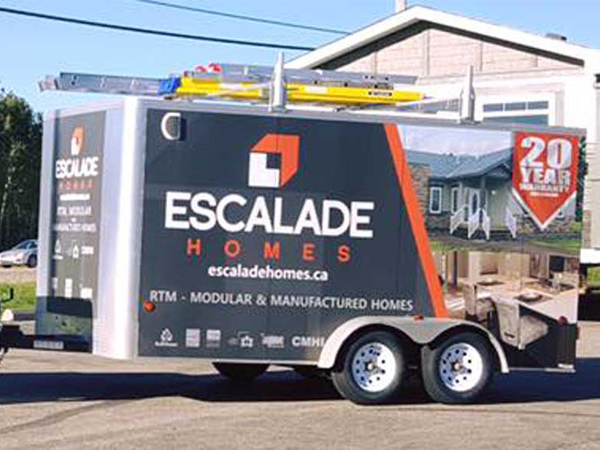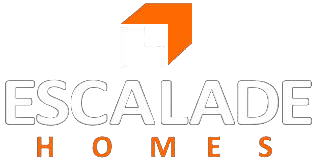
OUR
TEAM
Escalade Homes has been in business since 2006 supplying a multitude of private single and multi family dwellings, duplexes, cottages, condominium & commercial/office structures throughout Saskatchewan & First Nation communities. Our staff are highly experienced professionals with over 40 years experience in the construction field. In addition, our management team has over 30 years of Sales, Marketing & Project Management experience that will co-ordinate all facets of the project including mechanical, electrical, water and sewer infrastructure and excavation with complete turn-key construction. Our mission is to build long term relationships within the community by using local contractors / employees to be a part of the building process when applicable. We look forward to working with you & your community!
OUR
PARTNER

Time & money.
Quality control.
Design flexibility.
Environmental sustainability.
Triple M Housing continues to lead all home builders with a singular focus on reduced environmental impacts. Through using green initiatives—such as the Built Green program, Energy Star participation, and distinct in-house recycling strategies reducing the expected waste of home construction by over 60%.
Each Triple M home is built in strict accordance with the National Building Code, provincial codes, and municipal codes, and they are audited by third party agencies, providing the satisfaction of exemplary quality control and comfort.
FAQ’S
FREQUENTLY ASKED QUESTIONS
What are the Advantages of Building Modular in a Factory?
Building a modular home offers several advantages compared to traditional site-built construction. Some of the key benefits include:
Cost Efficiency: Modular construction is often more cost-effective than traditional construction due to factors such as reduced material waste, economies of scale in manufacturing, and shorter construction times.
Faster Construction: Modular homes are built in a controlled factory environment, allowing for simultaneous work on different sections of the home. This can result in significantly faster construction timelines compared to on-site building, which is particularly advantageous in regions with unpredictable weather.
Quality Control: Construction in a factory setting allows for strict quality control measures. The standardized processes and inspections during each phase of construction can lead to a higher level of precision and consistency in the finished product.
Energy Efficiency: Modular homes often incorporate energy-efficient features and materials during construction, contributing to lower energy costs over the life of the home.
Design Flexibility: While modular homes start with pre-designed modules, there is often flexibility in floor plans and design elements. Many manufacturers offer a range of customization options to meet the specific needs and preferences of homeowners.
Reduced Disruption: Most of the construction occurs off-site, minimizing disruption to the surrounding community during the building process. On-site work is typically limited to assembly and finishing touches.
Environmental Benefits: The controlled environment of a factory allows for better waste management and recycling of materials. Additionally, the reduced construction time can result in a smaller environmental impact.
Predictable Costs: With the controlled environment of modular construction, there is often greater predictability in costs. This can be beneficial for both homeowners and builders in terms of budgeting and financial planning.
While modular construction offers these advantages, it’s important to note that the suitability of modular homes depends on individual preferences, local building codes, and specific project requirements. Buyers should carefully research and choose reputable modular home manufacturers and builders to ensure a successful and satisfying building experience.
What is a Manufactured Home?
What is Modular Construction?
- Residential Buildings: Apartments, single-family homes, and multi-family housing.
- Commercial Buildings: Offices, retail spaces, and hotels.
- Education: Schools, universities, and daycare centers.
- Healthcare: Clinics, hospitals, and medical offices.
- Industrial: Factories, warehouses, and data centers.
In summary, modular construction represents a modern, efficient, and versatile approach to building that can meet a wide range of needs and offers several benefits over traditional construction methods.
What is an RTM?
An RTM, or Ready-to-Move (RTM) home, is a type of prefabricated house that is built in a factory setting and then transported to its final location where it is placed on a permanent foundation. This process combines elements of modular construction with the convenience of
Applications of RTM Homes
- Residential: Single-family homes, vacation homes, and cottages.
- Remote Areas: Ideal for locations where on-site construction is challenging or costly.
- Replacement Housing: Quick and efficient replacement for homes damaged by natural disasters or other events.
RTM vs. Modular Homes
While both RTM and modular homes involve factory construction and transportation to the site, they differ mainly in the stage of completion:
- RTM Homes: Fully constructed and finished in the factory, requiring only placement on a foundation at the site.
- Modular Homes: Built in sections (modules) that are transported to the site and assembled there, with final finishing work typically done on-site.
In summary, RTM homes offer a high-quality, efficient, and customizable housing solution that combines the benefits of prefabricated construction with the permanence of a traditional home.
Can A Floor Plan Be Modified?
Does a Manufactured Home Cost More than Traditional Site Build?
How long does it take to build a Factory home?
What type of warranty is offered?
Triple M housing offers a “20 Year Structural warranty”
The specific warranty offered with a manufactured home from Triple M Housing, or any other manufacturer, can vary, and it’s essential to check with the company directly for the most accurate and up-to-date information. Typically, manufactured homes come with warranties that cover various components, such as the structure, appliances, and systems. These warranties may include a structural warranty, which typically covers defects in workmanship and materials related to the home’s structure. Additionally, there may be separate warranties for appliances and other components provided by third-party manufacturers. The duration and terms of these warranties can also vary. It’s crucial for homebuyers to carefully review the warranty information provided by the manufacturer and to understand the coverage and any conditions that may apply.
Do your homes come with appliances?
Why Choose Escalade Homes?
The purchase of a new home is one of life’s most exciting events. You can be assured that our high standards will give you
and your family a new home that will provide many years of comfortable living.

